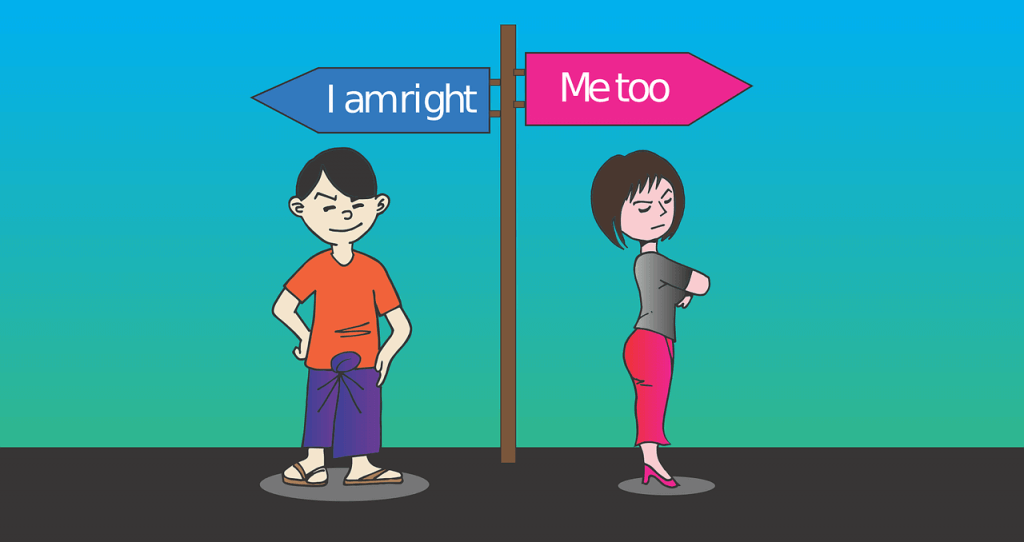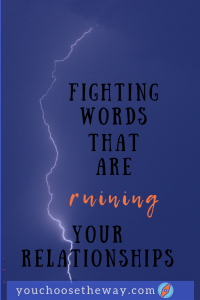Dealing with conflict is part of life. Most of us share our lives with a lot of other people, some people that we love, and some that are annoying and drive us crazy. Either way, fighting, debating and disagreeing are part of the deal. We can’t always agree, it would be unrealistic to assume otherwise. It doesn’t matter that disagreements happen, what matters is how we confront those disagreements. Do you scream and yell, throw dishes and use excessively over the top fighting words or do you bottle all the annoyances inside, and let then trickle out of you unfairly and totally out of context?

Becoming good at managing hard conversations is an art and skill that can take years to develop. Unless you’re one of those annoying people who is naturally blessed with the ability to stay calm and cool when people say hurtful or disrespectful things. In that case, well this article isn’t for you zen master.
For the rest of you, learning to manage tough conversations like a pro is a must if you’re wanting to build your ideal life. Relationship spats about the dishes, being able to explain to customers why they aren’t always right and finding the right tone and words to tell your irritating neighbor to stop stealing veggies from your garden are all contexts that require skill and patience to get through successfully. Wise word choice and a super ability to keep your impulses and anger in check become crucial.
Which can be pretty tough.
Especially when your opponent is just as feisty and fiery.
Keeping your cool when the person you’re fighting with is flipping out can seem totally impossible, but I promise with a bit practice, determination and willpower you can learn to stay cucumber cool during heated talks. Your fighting words can become just as chill and easy going as a Sunday afternoon.
Why become a master fighting words handler
There are tons of ways that you’ll benefit from becoming better at managing your fighting words. Let me tell you about a few.
First and foremost, so you don’t end up like these people:
But then also:
- You’ll learn to express constructive and clear ideas during difficult conversations.
- You won’t say things just to hurt or put down other people. Your words will be chosen to express your own feelings, ideas, and concerns. Your tone will be consciously chosen too, to help create a peaceful and open environment for talking through the hard stuff.
- Getting off the beaten path to do things your own unique way will sometimes be met with resistance, confusion and doubt. Knowing how to express your potentially conflictive ideas is vital to helping others understand your unconventional life choices.
- True beauty can be found in learning to manage arguments successfully. Being able to come out the other side of an argument where fighting words and fiery tempers were kept to a minimum helps develop trust, understanding and compassion.
- Becoming a more conscious arguer helps you notice more easily when you are blaming others for your own internal conflicts.
- Unnecessarily argumentative and confrontational people are annoying. They push people away by creating battlefields in the most innocent contexts, like deciding on pizza toppings or needing to convince their pal that they are just too close to the wild animals. Uncligging from our need to be right and win is extremely liberating.

FYI, this is too close.
Destructive fighting words that you need to get rid of ASAP
“Never” and “always”
You are always talking about Jessica! You never tell me you love me anymore! Never? Really? I doubt if they are never doing it. Or always doing anything. No one is ever always doing anything, besides maybe breathing.
We use these fighting words to make our point stronger and more dramatic. We have a point we’re trying to make, and we’ll use any cheap strategy to emphasize how right we are and cram it down the other person’s throat.
Always and never are good words to help you do that. They bring no true value to a conversation and are never true.
Make it a habit to notice when you use either word to slowly take these fighting words out of your vocabulary. Once gone, you can use more appropriate words to describe what’s bugging you.

Name calling
We all do it; generalize the horribleness that is our opponent and call them condescending names according to said horribleness. You are such a _____ (bitch/liar/cheater/moron/inconsiderate/complete asshole/lazy dirtbag)!
Name calling is just another simple strategy to put the other person down to make it easier to “win” the argument. That or you’re looking to hurt them as much as you feel hurt.
Calling someone names won’t help you solve the argument peacefully. All it does is add lighter fluid to an already fiery context.
Bringing up past fights
We’ve surely all done this and had other do this to us. So, I have no doubt that you know what it’s all about.
You’re arguing with your coworker because he thinks that you’re not pulling your weight with the fall campaign. Instead of just facing up to what he’s telling you, you spit out “This is just like you Jim, always putting me down. This is exactly like that time (4 years ago) that you got jealous of my great idea, stole it, and said it at the next meeting like it was your own.”

You say this although you and Jim already talked about that issue and solved it. Jim even apologized and you both collaborated on the project.
So why bring up Jim’s error again?
Like all the other annoying, unpleasant, unbeneficial fighting words on this list, people do it to put their opponent down, to help themselves feel stronger, more empowered so that they can then “win” the fight.
Bringing up random annoyances you’ve been holding onto
Let me explain this one with an example.
You decide to tell your partner that it bothers you that they keep forgetting to turn off the light in the kitchen. You kindly tell them that you’d really appreciate it if they tried to remember to turn off the light, and their response is “Only if you stop leaving your junk all over the office!”

If they had a problem with your junk taking over the room, they could have chosen a better time to let you know it bothers them. Holding onto it until you mention something they’re not happy with, is like keeping a loaded gun in your pocket. It’s dangerous and creates a high risk of unnecessary battles.
Be honest and open about the stuff that bugs you. And if you decide that something isn’t worth mentioning, then let it go. Don’t just sneakily hold onto it, to be released when you’re feeling particularly vulnerable.
Why winning an argument is often senseless
So, let’s assume that the context isn’t a debate about technical accuracy to get an article published in a scientific publication. I’m thinking more along the lines of an argument with your partner about someone’s hurt feelings or a conflict with a neighbor or colleague about different points of view.
We fight to win. Our egos push us to be the one with more accurate information or force us to prove that our truths are truer than anyone else’s. We insist on the validity of our viewpoint until we are blue in the face. But then once we “win”, what do we gain?
Being right? A point for being smarter? Or better? Maybe even superior?
But what does that point give us?

If you’ve kept the argument going until you’ve “won”, you’ve most likely shoved your ideas down your opponent’s throat until you’ve suffocated them into giving in.
It happens to all of us, in the heat of the moment, it’s easy to lose perspective and impulsively react as though you NEED to win. But often times, if you’re able to become conscious of what’s going on in those moments, you realize that “winning” this fight won’t benefit you. It might even make you lose a friend or help your girlfriend decide to ditch your ass.
Winning a fight should make everyone involved feel heard and understood, instead of raising one person up to be the champion. Be the champion by bringing your awareness and focus into each conversation, especially the fiery ones.




Jo, really enjoyed reading this article and thought that you are right on….
Thanks matante Yvonne! And thanks for reading
Hi Jo,
This article touched on a lot of points from a book I read called “Non Violent Communication”. I like how to broke it down to simple points that can easily be applied to our lives. I find it’s easy to understand and spot in others, but difficult to apply when you are in the moment and your emotions are running high. Any tips?
Daniela
For me, the only thing that works is meditation. After years of meditating, I find I’m more able to stay present when my mind really wants to be impulsive (and freak out). Besides that, it helps me be more compassionate with myself (when I do lose my cool) and to develop patience.
Your’s is a point of view where real intceligenle shines through.